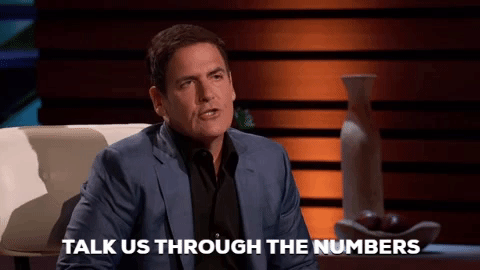Academic advisors are challenged to balance supporting our students’ dreams with the realities of their skills, motivations, and the job market.
Whether you are meeting with a student in career foreclosure, who has had their mind set on being a doctor since before they could walk but can’t pass biology; a student who has spent a majority of their life in one career area and doesn’t want all that time to feel wasted in a major within a new career area; or a student who has a strong passion for liberal arts but is feeling pressured choose a career that “makes more money”, this article is for you.
How can you have a supportive Plan B conversation? How can you be an ally to students who are struggling within their major without crushing their dreams?
Let’s start with the facts.

Data from Inside Higher Ed highlights some shocking trends as of 2019:
- Only 27% of college graduates currently work in a field related to their major.
- Graduates tend to move in and out of major-related careers within their first three jobs, which then often determines which field they remain in until retirement.
- The most common jobs for graduates with a bachelor’s degree, across all majors, were sales, marketing, and management, with stark increases in communication.
Although this data might sound alarming, it reassures students that their undergraduate major is not prescriptive of their career journey after graduation. Instead, what really matters to employers — and what drives those first three jobs most — are transferable skills, work and internship experience, and networking.
This data supports that Plan B conversations can apply to any student in a career or academic advising setting!
However, there are particular groups of students for which such conversations are most vital:
- The struggling student: Students who are on academic probation, have had an academic probation warning, or express that they are not doing well in their classes often largely benefit from constructive conversations with staff and faculty. A number of factors may cause a student to be on academic probation, but having a major that does not align with their interests or strengths can especially lead to poor academic performance.
- The foreclosed student: Foreclosed students have bound themselves to a single career with limited research and reflection into their interests, strengths, abilities, and career options. So, having a Plan B conversation can create a safety net for such students, should their desired major not pan out.
- The exploratory student: Many institutions require students to declare a major by a certain point. For exploratory students, this looming deadline may lead them toward making hasty decisions. Start alternative career conversations early with students — to help them find a major that allows them to continue exploring and growing within their strengths.
- The major-life-changes student: As more and more students return to education after full-time work experience, (a trend which may increase after COVID-19), their major selections may not match their prior careers. So, begin career conversations with such students early, highlighting transferable skills and connections they have already made. This can help shift their perspective on what they have already accomplished to benefit them in their new post-graduation career path.
- The student under pressure: Although similar to the foreclosed student, these learners are often foreclosed on a certain major due to outside influencers, such as friends and family. Yet, they are longing to explore different personal passions. Instead of perilously navigating these boundaries, you should provide a safe place for these students to explore their interests and discover for themselves the exploratory opportunities your institution provides.
Now that I’ve identified who may benefit, let’s turn to timing. When is the best time to start a Plan B conversation? How should you initiate it?
The short answer is: As soon as possible! Starting reflective conversations from your very first meeting is key and can help your students work toward continued development.
Here are a few ways you can initiate conversations on alternative career options:
- Ask the student if they would be interested in a career assessment. Great options include FOCUS2, Myers-Briggs, and Clifton Strengths.
- Discuss personal and professional values. Asking the student what they want out of a career can give you insight into their motivations. A few free tools to help guide you are the Personal Values Assessment and the Valued Living Questionnaire.
- Share opportunities to job shadow, intern, or volunteer in an area of interest. Connect students with employers who are hiring or looking for interns.
- Encourage students to attend major and career fairs as early as possible, help them prepare with interview practice, improving their LinkedIn profile, and other essential preparations.
- Discuss your institution’s policies on dual-degrees, double majors, or multiple minors. Go one step further by providing your student with a degree audit or road map on what it would take to change their degree path.
- Emphasize other high-impact practices available at your institution, such as learning communities, first-year seminars, community service, research opportunities, and capstone projects, which can provide them with invaluable hands-on experience and insight into their field(s) of choice.
- Connect the student with clubs or organizations for students who are also exploratory or interested in a similar career path (for example, a pre-veterinary studies club, astronomy enthusiasts, or an accounting society).
- Provide the student with resources to be successful in their chosen major — such as tutoring, interview practice, and business card bonanzas.
There is no singular ideal route in guiding Plan B career conversations; what really matters is that you are having these discussions in the first place! By providing your students with opportunities to explore their skills and passions, you are encouraging them to self-reflect on what they are truly hoping to gain out of their time at your institution.
What additional tips or questions do you have about Plan B conversations? Connect with us on Twitter @themoderncampus.





